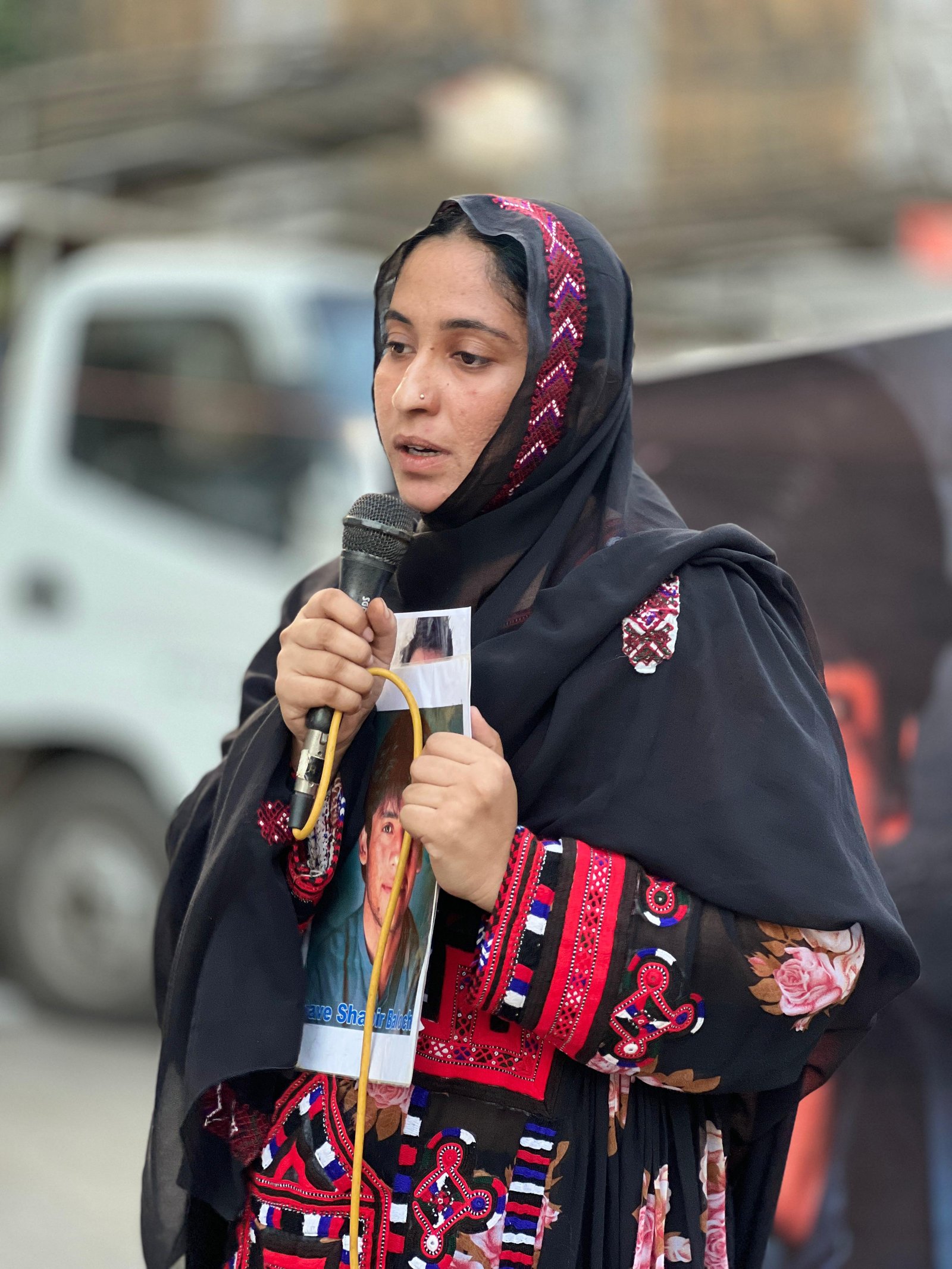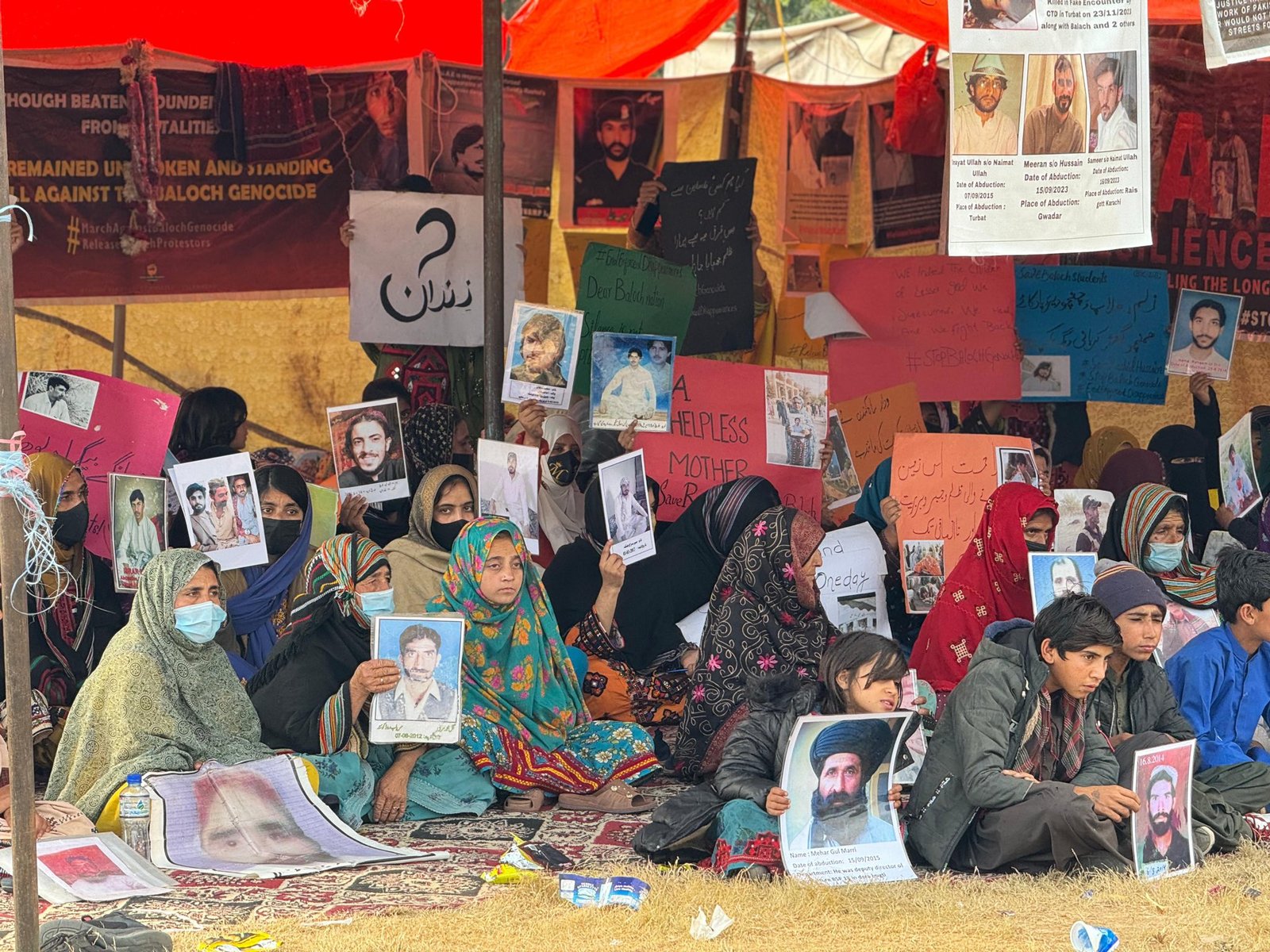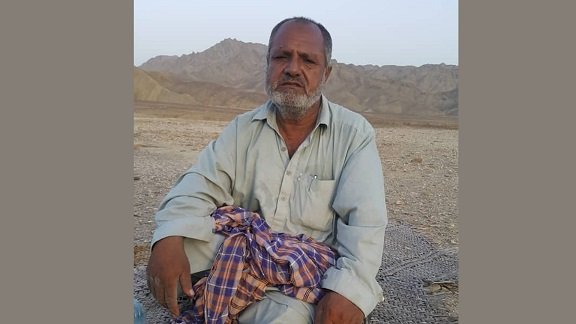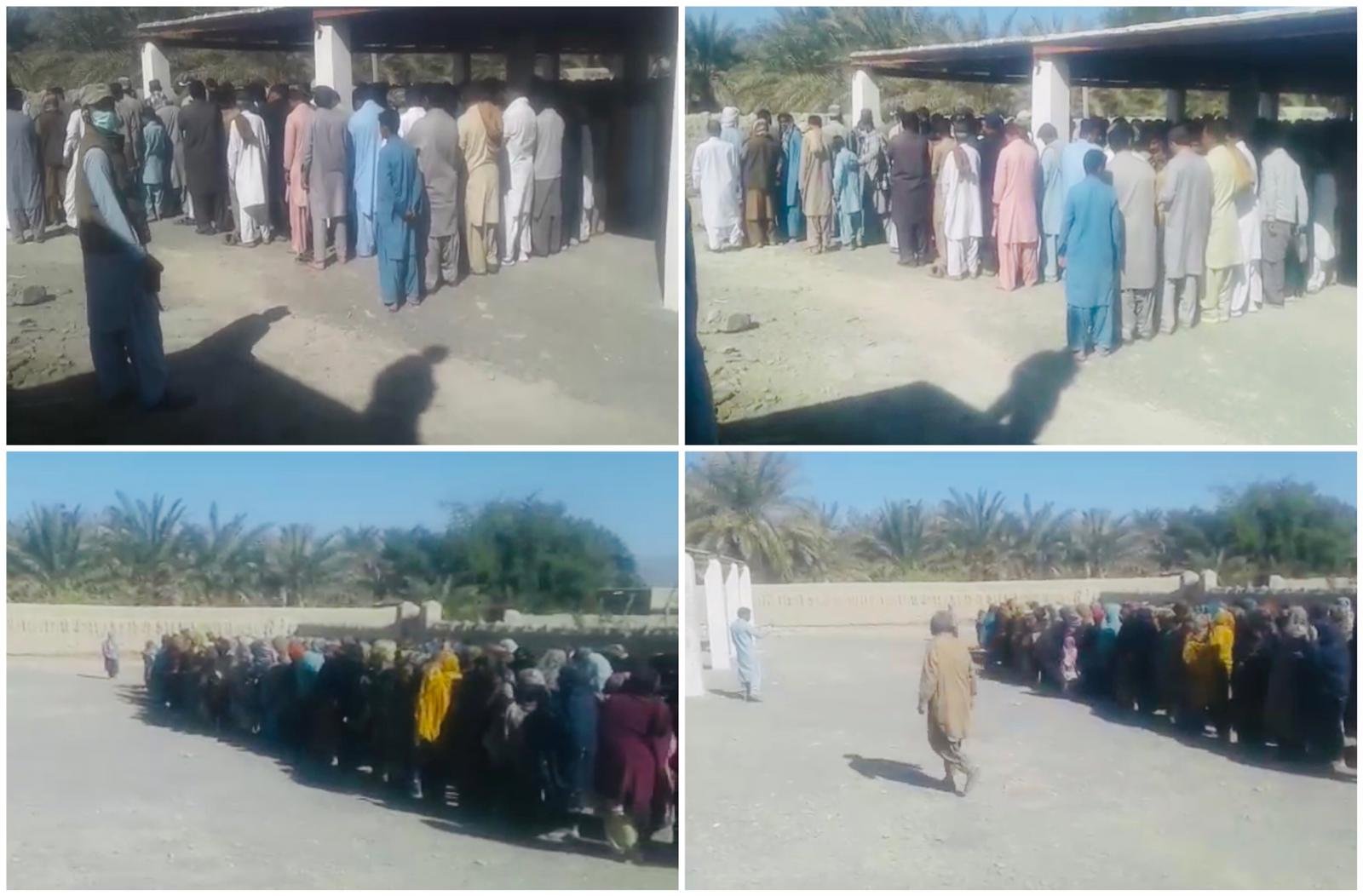Karachi, Protest held for Baloch Student Leader Shabeer Baloch's Recovery Karachi- Baloch student leader Shabeer Baloch, who has been missing for seven years, his family called a protest rally today from the Karachi Arts Council to the Press Club, demanding his safe release. Shabeer Baloch, a student leader, was unlawfully detained by Pakistani security forces along with 20 others in Gwarkop area of Turbat on October 4, 2016, during his wife Zareena's presence. While the other missing persons were released within two weeks, Shabeer Baloch's whereabouts remain unknown to this day. Addressing the protest rally today, Shabeer Baloch's sister, Seema Baloch, stated, "For Shabeer Baloch's recovery, we have continuously protested, held rallies, hunger strikes, and camps. Ex Prime Minister Imran Khan assured us two years ago that Shabeer Baloch among other Baloch missing persons would be brought back soon, but despite two years passing, there is no news of my brother." She further emphasized, "We want to convey to the country's caretaker Prime Minister that we are not mad people crying on the streets. We come out with a pain, but the rulers of this state are not affected by our cries. We have used all means of protest, but there is no attention to cases of enforced disappearances in this state." Zareena Baloch, the wife of forcibly disappeared Shabeer Baloch, questioned, "Please tell me whether I am Shabeer's wife or widow? For seven years, I have waited for my husband's return. Please, give us news of Shabeer." Relatives of other Baloch Missing Persons individuals also participated in the protest and addressed the gathering. In her speech, Amna Baloch, Organizer Of BYC Karachi said, "The issue of enforced disappearances is an extremely serious matter that Pakistan has never taken seriously. The entire family suffers social punishment when an individual goes missing." The protesters demanded Shabeer Baloch's recovery and insisted that if there are any allegations against him, they should be presented in court and proven. However, they vehemently opposed the prolonged enforced disappearance of an individual without any charges.
Karachi, Protest held for Baloch Student Leader Shabeer Baloch’s Recovery

OCT
04Last posts
Related posts
Body of martyred Saqib Karim reaches his Homeland in Besima
15 / 07 / 2022
Senior BNM Worker Master Fazal Ahmed Passed Away.
08 / 06 / 2021




